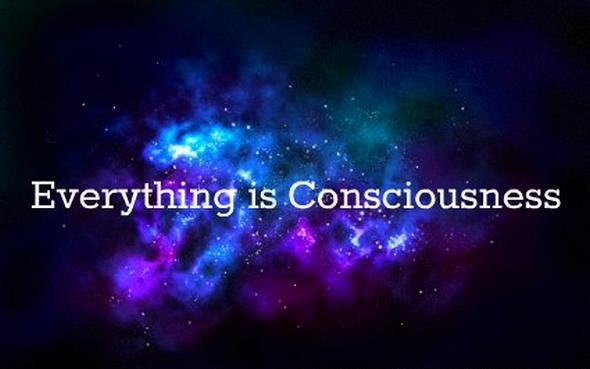Review of Amartya Sen: Freedom of choice -concept and content
Freedom of choice : Concept and content.
In this lecture, Amartya Sen gave profound argument regarding freedom; its concept and different ways of valuing it. He addressed economic issues in terms of freedom of choice and seeing it through basic economic notions as individual well beings, social welfare, living standard, consistent choice and rational behavior in a different perspective if not, otherwise would be restrictive and limiting in its own nature of discipline.
He not only illustrated the instrumental importance of freedom but also argued about considering its intrinsic worth which we should not ignore while evaluating its role in economic assessment. He mentioned this as a “non-sequitur” i.e. it didn’t follow formal logic to describe the argument of such a change. For instance, it wouldn’t affect a person’s real interest (self worth) if there is reduction of freedom of choice (denial of instrumental importance) and its relevance.
He analyzed positive and negative characteristic of freedom in which a person can choose to do or achieve, on the absence of particular type of restraint that prevent him/her from doing alternatives – that would be positive freedom and the negative view of freedom focuses precisely on absence of a class of restraint that one person may exercise over another. In this, he mentioned Frank Knight remarks as deprivation of freedom being deprivation of “Power.”
The decision on choosing choices is based on purely as constraints on personal behavior and his/her internal tension. This problem of internal tension, which may be resolved by embedding the value of negative freedom in a structure of consequences, for those can coexist in their lives with terrible hardships and miseries, he explained. However, focusing totally on negative characteristic of freedom is inadequate. So, there is clearly a situation for paying attention to over all freedoms which is positive freedoms.
He analyzed positive freedom and relating it with capabilities, he stated judging freedom of choice in terms of peoples command over commodity bundles has limitation in a way that there can be enormous interpersonal variation in relating the actual ability of a person to do. A person’s absolute capabilities to do something relate closely to a person’s relative position of what others in the society possess and use. So, it showed enormous heterogeneity of human being in terms of personal, social and natural characteristics. And, freedom of choice reflects our ability to achieve valuable functioning and well beings in the society. Further precisely, he described the freedom to choose between functioning bundles reflects a person’s “advantage” – his/her “capabilities” to function – that person may able to achieve so called positive freedom.
He illustrated with assessment of different sources such as World development report 1986, for inter country comparison of GNP per head and Life expectancy, Cause of death; Life tables for National population ( New York, 1972) for extension of Life expectancy at birth, in England and Wales 1901 -60; Similarly, source from Evolution of Government policies and Expenditure on social welfare in Sri lanka during the 20th Century, Colombo, 1985, comparative food availability per head 1983 India and Sub-Saharan Africa; Source from World development report 1986, China – India Comparative perspective; Life expectancy at birth in China and India; which overall illustrated how role of intervention of public policy and its implications on freedom to live had achieved and changed quite radically as a instrumental role of freedom in different countries with its relevance to social reforms and political freedom as well. They focus on freedom as diverse instrumental roles as well as having intrinsic importance.
However, he slightly shifted his argument giving different perspective explaining that if freedom is only instrumentally valued, then valuation of the person’s capability to function would be no different from evaluating the chosen functioning bundle in the respective capability set with the fact that the person’s actual functioning to choose need not to be coincide with evaluation of the chosen element of it because “choosing” may itself an important functioning.
So, refining its notion of function that simple modification gives many implications, in particularly its impact on ideas of consistent choice and rational behavior under certainty and uncertainty which are the central ideas of modern economic theory. His concepts of refinement its notion of functioning actually violated it and the problem arises as the description of living is not just formal but deeply substantive, he added. So this refinement can add to the interest of enterprenial methodology as he justified before his concluding remarks. He stated at the end that the foundational importance of freedom may well be the far reaching substantive problem neglected in standard economics.
In his concluding remarks, he briefly addressed few issues which may be the matter of attention.
Firstly, the intrinsic importance of freedom of choice has to be different with its instrumental relevance while it is undeniable of having role of freedom as a means to other side. Even though, its intrinsic value has often neglected in the standard literature( preferring to focus on what Milton Friedman calls “ the fecundity of freedom”)
Secondly, It is possible to give special importance to negative freedom even when over all positive freedom is also valued.
Thirdly, the perspective of concentrating exclusively on negative freedom – ignoring positive freedom is deeply vulnerable to external critiques.
Fourthly, the choice of the space in which positive freedom is to be characterized and assessed is one of the great analytical interest and practical importance. In this context, the alternative for real incomes, primary goods, and functioning and capabilities were examined and assessed.
Fifthly, the role of public intervention in promoting positive freedom in developing countries was discussed and illustrated drawing on international comparison specifically China, India, Sri lanka and Sub-Saharan Africa, ( and also of Britain from earlier period.)
Finally, Issues of methodology in an enterprise raised to be assessed in the context of “choosing” as an important functioning, and the characterization of chosen alternatives in a “refined” way which is a substantive problem neglected in standard economics.



